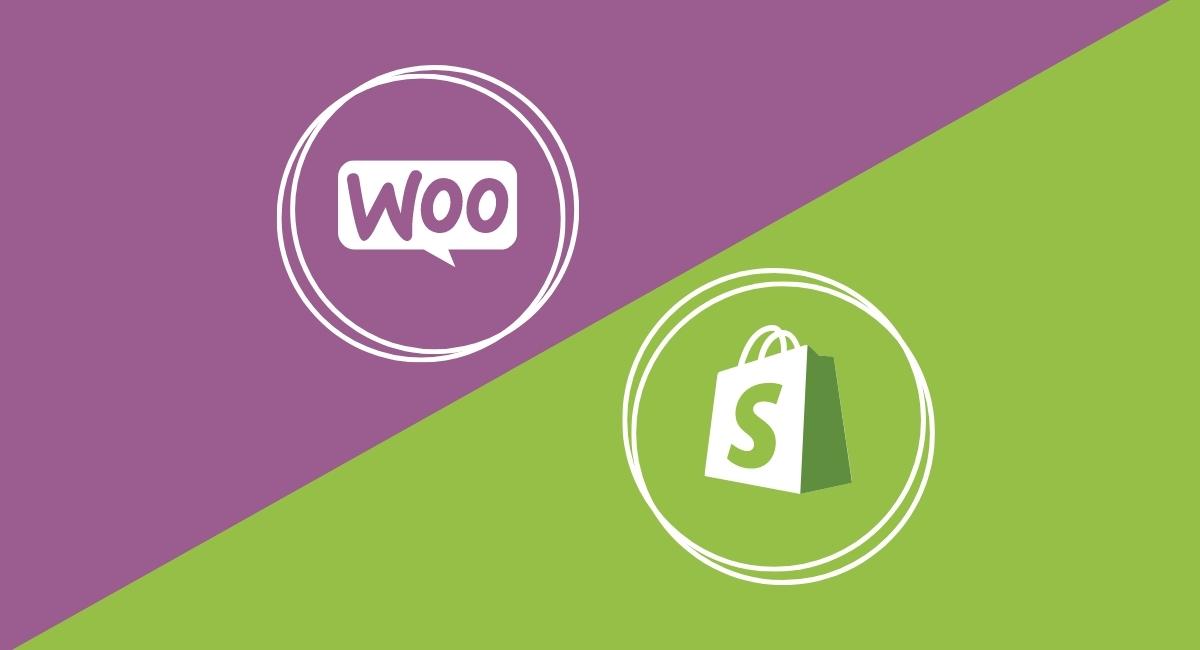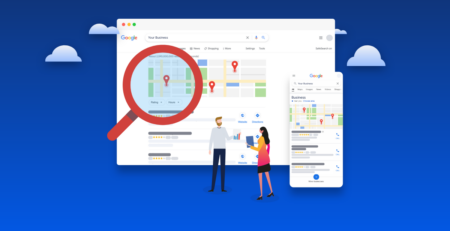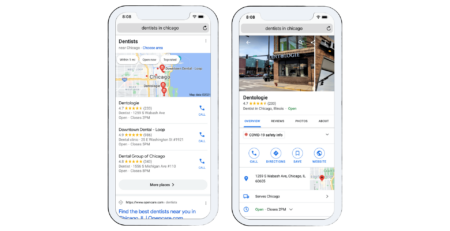In today’s digital age, having an online store is vital for businesses to reach customers worldwide. When it comes to setting up an e-commerce website, choosing the right platform is crucial. Two popular options are Shopify and WooCommerce. Shopify offers an easy-to-use, hosted solution with a range of features, while WooCommerce provides flexibility and control through its integration with WordPress. Both have their pros and cons, making the decision challenging for business owners.
In this article, we’ll compare Shopify and WooCommerce to help you decide which platform works best for your business. We’ll look at factors like ease of use, customization options, and more. By the end, you’ll have a clearer understanding of which platform aligns with your needs and goals, setting you on the path to e-commerce success.
Table of Contents
Shopify: Pros

Easy to Use
Shopify is designed to be user-friendly, even for those with little technical knowledge. Its intuitive interface allows you to set up and manage your online store without much hassle. From adding products to customizing your store design, Shopify makes the process simple and straightforward.
Hosted Solution
With Shopify, you don’t need to worry about finding hosting or managing server configurations. Everything is taken care of by Shopify, so you can focus on running your business. This hosted solution also ensures that your store is secure and reliable, with regular updates and maintenance handled by Shopify’s team.
Extensive App Store
Shopify offers a wide range of apps and integrations through its App Store, allowing you to enhance the functionality of your store. Whether you need tools for marketing, inventory management, or customer support, there’s likely an app available to meet your needs. These apps can help you streamline processes, improve the customer experience, and grow your business.
Excellent Customer Support
Shopify provides top-notch customer support to help you with any issues or questions you may have. Whether it’s technical assistance, billing inquiries, or general advice on running your store, Shopify’s support team is there to assist you via phone, email, or live chat. Their responsive and knowledgeable support staff can help you resolve issues quickly, keeping your store up and running smoothly.
Shopify’s ease of use, hosted solution, extensive app store, and excellent customer support make it a popular choice for businesses looking to start or scale their online stores. Whether you’re a beginner or an experienced e-commerce entrepreneur, Shopify offers the tools and support you need to succeed in the competitive world of online retail.
Shopify: Cons
Monthly Fees
One of the drawbacks of Shopify is that it comes with monthly subscription fees, which can add up over time. While Shopify offers various pricing plans to fit different budgets, these recurring costs may be a concern for small businesses or those on a tight budget. Additionally, as your store grows, you may need to upgrade to a higher-priced plan to access advanced features and accommodate increased traffic, further increasing your monthly expenses.
Transaction Fees
In addition to monthly subscription fees, Shopify charges transaction fees for each sale made through your store, especially if you’re not using Shopify Payments. While these fees vary depending on your chosen plan, they can eat into your profits, especially for high-volume sellers. To avoid transaction fees, you’ll need to use Shopify Payments as your payment gateway, which may not be available in all countries or for certain types of businesses.
Limited Customization Options
While Shopify offers a range of customizable themes and allows some degree of customization through its theme editor and coding language (Liquid), it may not provide the level of flexibility that some businesses require. Compared to platforms like WooCommerce, which allows full control over your store’s code and design, Shopify’s customization options are somewhat limited. This can be a drawback for businesses with specific branding or design requirements.
Dependency on Third-Party Apps
While Shopify’s App Store offers a wide range of apps and integrations to extend the functionality of your store, relying too heavily on third-party apps can have drawbacks. Integrating multiple apps can increase complexity, potentially leading to compatibility issues or conflicts.
Some essential features may only be available through paid apps, adding to your overall expenses. Depending too much on apps also means relying on third-party developers for support and updates, which can be a risk if an app becomes outdated or unsupported over time.
Despite these drawbacks, Shopify remains a popular choice for many businesses due to its ease of use, comprehensive features, and strong support system. However, it’s essential to carefully consider these cons and weigh them against the platform’s benefits when deciding if Shopify is the right choice for your business.
Key Features Comparison
When choosing between Shopify and WooCommerce for your online store, it’s essential to consider the key features each platform offers. Let’s compare these features to help you make an informed decision.

Ease of Setup
Setting up a store on Shopify is straightforward and doesn’t require technical expertise. With its user-friendly interface and guided setup process, you can have your store up and running in no time.
While WooCommerce is also relatively easy to set up, it requires a bit more technical know-how, especially if you’re using WordPress for the first time. However, with countless tutorials and resources available online, you can quickly learn how to navigate WooCommerce’s setup process.
Product Management
Managing products on Shopify is intuitive, with features like bulk editing, inventory tracking, and product variations built-in. Adding new products, updating inventory levels, and organizing your catalog are simple and efficient.
With WooCommerce, you have complete control over your product management. You can easily add, edit, and categorize products, customize product attributes, and manage inventory levels directly from your WordPress dashboard.
Theme Options
Shopify offers a wide selection of professionally designed themes, both free and paid, to customize the look and feel of your store. These themes are responsive and optimized for mobile, ensuring a seamless shopping experience across devices.
With WooCommerce, you have access to thousands of WordPress themes, giving you unlimited design possibilities. Whether you prefer a pre-designed theme or want to create a custom design from scratch, WooCommerce’s flexibility allows you to achieve your desired look.
Customization Flexibility
While Shopify’s themes are customizable to some extent, they may not offer the same level of flexibility as WooCommerce. However, Shopify’s theme editor and coding language (Liquid) allow for basic customization, such as changing colors, fonts, and layout.
With WooCommerce, you have full control over your store’s code and design. You can customize every aspect of your site, from the layout and typography to the functionality and user experience. Whether you’re a beginner or an experienced developer, WooCommerce’s open-source nature allows for endless customization possibilities.
Available Payment Options
Shopify offers a wide range of payment options, including credit cards, PayPal, Apple Pay, and more. You can choose from over 100 payment gateways, ensuring that you can accept payments from customers worldwide.
With WooCommerce, you have the flexibility to choose from a variety of payment gateways, including popular options like PayPal, Stripe, and Square. Additionally, WooCommerce supports countless payment extensions, allowing you to integrate with local or niche payment methods.
Transaction Fees
Depending on your chosen pricing plan and payment gateway, Shopify may charge transaction fees for each sale made through your store. However, using Shopify Payments as your payment gateway can help you avoid these transaction fees in most cases.
WooCommerce itself does not charge any transaction fees for sales made through your store. However, you may still incur transaction fees from your chosen payment gateway, so it’s essential to consider these costs when comparing payment options.
Handling Large Catalogs
Shopify is well-equipped to handle large catalogs with thousands of products. Its robust infrastructure ensures fast load times and smooth performance, even as your store grows.
With WooCommerce, your store’s performance largely depends on your hosting provider and server resources. While WooCommerce itself can handle large catalogs, you may need to invest in a reliable hosting plan to ensure optimal performance.
Performance Under High Traffic
Shopify’s cloud-based platform is designed to handle high traffic volumes, with built-in scalability and redundancy. Whether you’re running a flash sale or experiencing a sudden surge in traffic, Shopify can dynamically adjust to meet demand.
The performance of your WooCommerce store depends on factors like hosting, caching, and optimization. With proper setup and configuration, WooCommerce can handle high traffic levels effectively. However, it’s essential to choose a reliable hosting provider and implement performance optimizations to ensure smooth operation during peak periods.
Built-in SEO Features
Shopify comes with built-in SEO features to help optimize your store for search engines. You can customize meta tags, URLs, and image alt text, and take advantage of features like canonical tags and XML sitemaps to improve your store’s visibility in search results.
With WooCommerce, you have full control over your store’s SEO settings, allowing you to optimize every aspect for search engines. You can install SEO plugins like Yoast SEO or All in One SEO Pack to further enhance your store’s SEO capabilities.
Marketing Tools and Integrations
Shopify offers a range of built-in marketing tools, such as abandoned cart recovery, discount codes, and email marketing integrations. Additionally, you can explore the Shopify App Store for third-party marketing apps to enhance your promotional efforts.
WooCommerce integrates seamlessly with popular marketing tools and platforms, allowing you to leverage email marketing, social media, and other channels to reach and engage your audience. With countless marketing plugins and extensions available, you can tailor your marketing strategy to suit your business needs.
Both Shopify and WooCommerce offer robust features and capabilities for setting up and managing an online store. Your choice between the two platforms will depend on factors like ease of use, customization flexibility, pricing, and specific business requirements. By comparing these key features, you can determine which platform aligns best with your needs and goals, setting you on the path to e-commerce success.
Which Platform Is Right for Your Business?
Choosing the right e-commerce platform for your business is crucial for its success. Here’s a breakdown to help you decide between Shopify and WooCommerce:
Business Size
Shopify is ideal for small to medium-sized businesses that want a hassle-free solution with minimal technical requirements. Its user-friendly interface and hosted nature make it easy to set up and manage, making it suitable for beginners or those with limited resources.
WooCommerce is a better fit for businesses of all sizes, particularly those with more significant technical expertise or specific customization needs. As an open-source platform, WooCommerce offers unlimited flexibility and scalability, making it suitable for businesses looking to grow and expand over time.
Technical Expertise and Resources
If you’re new to e-commerce or don’t have much technical knowledge, Shopify may be the better choice. Its intuitive interface and guided setup process make it easy for beginners to get started without needing to worry about coding or server management.
If you have experience with WordPress or prefer full control over your store’s code and design, WooCommerce may be the preferred option. While it requires more technical expertise to set up and customize, WooCommerce offers unparalleled flexibility and customization options for those willing to invest the time and effort.
Long-Term Goals and Scalability
Shopify is an excellent choice for businesses looking for a simple, scalable solution that can grow with their needs. With its built-in scalability and robust infrastructure, Shopify can accommodate businesses of all sizes, from startups to enterprise-level operations.
For businesses with ambitious growth plans or unique requirements, WooCommerce provides the flexibility and control needed to scale effectively. Whether you’re expanding your product offerings, targeting new markets, or integrating with third-party systems, WooCommerce can adapt to meet your evolving needs.
Ultimately, the best platform for your business will depend on your specific needs, goals, and resources. Consider factors like pricing, customization options, integrations, support, and scalability when making your decision. By carefully evaluating these factors and comparing Shopify and WooCommerce’s features, you can choose the platform that aligns best with your business objectives and sets you up for long-term success.
The Perfect Platform
Both Shopify and WooCommerce offer powerful solutions for creating and managing an online store. Shopify provides simplicity and ease of use, making it ideal for beginners and small businesses. On the other hand, WooCommerce offers flexibility and customization options, catering to businesses of all sizes with specific needs.
By carefully considering factors like technical expertise, scalability, and long-term goals, you can choose the platform that best suits your business. Whether you opt for Shopify’s convenience or WooCommerce’s control, both platforms can help you build a successful e-commerce business and reach your online selling goals.
Are you in need of website development services for your business? Check out EvolveDash’s services! Let’s connect!

















